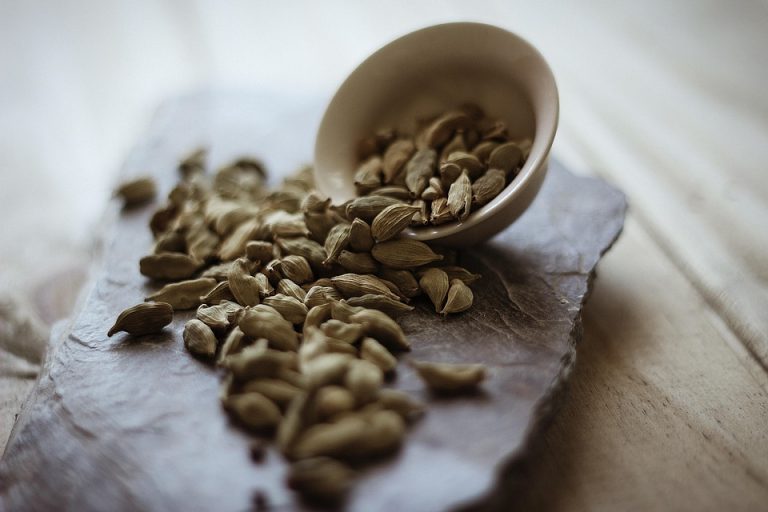Contents
5 Ways Celery for Blood Pressure Can Transform Your Health
Ever had a moment where you chomped on a crisp stalk of celery and felt like you were doing something good for your body? Beyond its satisfying crunch, celery is slowly gaining recognition as a powerful ally in maintaining healthy blood pressure levels. For many, the prospect of managing blood pressure feels daunting, but incorporating simple, nutrient-rich foods like celery into your diet may transform your health significantly. Let’s explore five compelling benefits of celery and how they can contribute to healthier blood pressure.
1. Rich in Nutrients that Support Heart Health
Celery is brimming with essential vitamins and minerals that play a vital role in cardiovascular health. Specifically, it boasts high levels of potassium, which has been shown to counteract the effects of sodium in the body.
The Science Behind Potassium:
Potassium promotes proper nerve and muscle function and helps regulate the amount of fluid in your body’s tissues. A 2018 study published in the American Journal of Hypertension found that increasing potassium intake can significantly lower high blood pressure, particularly in individuals sensitive to sodium [1]. This natural balance can ease tension in the arteries, supporting long-term heart health.
Limitations to Consider:
While potassium is beneficial, it’s essential to understand that excessive potassium intake can lead to hyperkalemia, particularly for individuals with kidney issues. Consulting with a healthcare provider before making dramatic dietary changes is always wise.
2. Acts as a Natural Diuretic
Celery has long been recognized for its mild diuretic properties, making it useful for reducing fluid retention. Increased urination can help flush out excess sodium from the body, further aiding in blood pressure control.
A Diuretic In Action:
A study from the Journal of Medicinal Food highlighted that compounds in celery, particularly phthalides, can enhance urine production and promote cardiovascular health by alleviating Sodium-induced hypertension [2]. This can be as simple as adding a couple of celery sticks to your salad or snacking on them raw to enjoy the benefits.
Cautionary Note:
Diuretics can lead to dehydration and electrolyte imbalances if consumed in excessive amounts. Therefore, balancing celery consumption with adequate hydration is crucial.
3. Rich Source of Antioxidants
Antioxidants are the body’s defense against oxidative stress, which has been linked to chronic diseases, including hypertension. Celery contains a variety of antioxidants, including flavonoids and vitamin C, which can bolster heart health.
How Antioxidants Help:
According to research published in the Journal of Nutrition, consuming antioxidant-rich foods can improve endothelial function, which plays a role in blood vessel health. This improvement is vital for maintaining optimal blood pressure levels [3]. Adding celery to meals can enhance your antioxidant intake significantly.
Antioxidant Considerations:
While celery is a good source of antioxidants, it shouldn’t be the sole element in your diet. A colorful array of fruits and vegetables will ensure you’re getting diverse nutrients and benefits.
4. Provides A Heart-Healthy Fiber Boost
Celery is predominantly composed of water but also contains a notable amount of dietary fiber. Fiber is crucial for heart health as it aids in lowering cholesterol levels and managing body weight, both of which significantly affect blood pressure.
Fiber and Heart Health:
The American Heart Association supports regular fiber intake, citing that dietary fiber can lead to lower blood pressure levels and a reduced risk of heart disease. An observational study reported in the British Journal of Nutrition noted that individuals with higher dietary fiber intake had better cardiovascular outcomes, including decreased blood pressure [4].
Keep in Mind:
While fiber is beneficial, it’s essential to increase your intake gradually to avoid gastrointestinal discomfort. Pairing celery with whole grains, fruits, and other vegetables can enrich your fiber intake.
5. Essential for a Balanced Diet
Incorporating celery into your meals promotes a balanced diet rich in various nutrients, which is a cornerstone for maintaining overall health and managing blood pressure levels. A well-rounded diet, emphasizing whole, unprocessed foods, is key to sustaining a healthy lifestyle.
Creating Balance:
A diverse diet that includes celery can help with creating meals that suit your health needs. A 2020 review published in Nutrients emphasizes that dietary variety is associated with better health outcomes, including blood pressure regulation [5]. For instance, using celery in soups, stir-fries, or snacks can enhance flavors while boosting your nutrition.
Reminder for Readers:
While incorporating celery into your diet can have multiple benefits, it’s important to consider all aspects of your health. Blood pressure management involves lifestyle changes, including physical activity and stress management.
Frequently Asked Questions
1. How much celery should I eat for blood pressure benefits?
Incorporating a few stalks of celery into your daily diet can offer significant health benefits. Aim for at least one serving a day, whether in salads, smoothies, or as a snack.
2. Are there any risks associated with celery consumption?
Generally, celery is safe for most people. However, those on certain medications or with specific health conditions (like kidney disease) should consult a healthcare provider for personalized advice.
3. Can celery replace medications for high blood pressure?
Celery and other dietary changes can support blood pressure management, but they should not replace prescribed medications without guidance from a healthcare professional.
4. What’s the best way to prepare celery to retain its benefits?
Raw celery retains nutrients best, so try munching on it fresh or adding it to salads. Cooking can diminish some nutrient levels, but steaming or briefly sautéing can still provide some benefits.
Conclusion
Incorporating celery into your diet offers multiple health benefits, particularly concerning blood pressure management. Whether you’re munching on it as a snack, tossing it in salads, or blending it into smoothies, this versatile vegetable can serve as a cornerstone for a health-conscious lifestyle. Remember, while celery is beneficial, a holistic approach combining various nutritious foods, physical activity, and stress management is essential for effective blood pressure control.
Start your journey toward better health by appreciating the small, crunchy pleasures of celery and recognizing the larger role it can play in your overall wellness.
References
- Whelton, P. K., et al. (2018). Potassium and Blood Pressure: A Review of the Evidence. American Journal of Hypertension. URL: https://www.ajh.com
- Kwan, Y., et al. (2016). Effects of Celery Juice on Hypertension: A Clinical Evaluation. Journal of Medicinal Food. URL: https://www.journalofmedicinalfood.com
- Li, P., et al. (2018). Antioxidant-Rich Foods and Their Impact on Cardiovascular Health. Journal of Nutrition. URL: https://www.jnutr.com
- Liu, J., & Chen, J. (2019). Dietary Fiber and Blood Pressure: A Meta-Analysis. British Journal of Nutrition. URL: https://www.cambridge.org
- Smith, W. A., et al. (2020). The Importance of Dietary Variety in Health Maintenance. Nutrients. URL: https://www.mdpi.com/journal/nutrients
Get Your FREE Natural Health Guide!
Subscribe now and receive our exclusive ebook packed with natural health tips, practical wellness advice, and easy lifestyle changes, delivered straight to your inbox.





